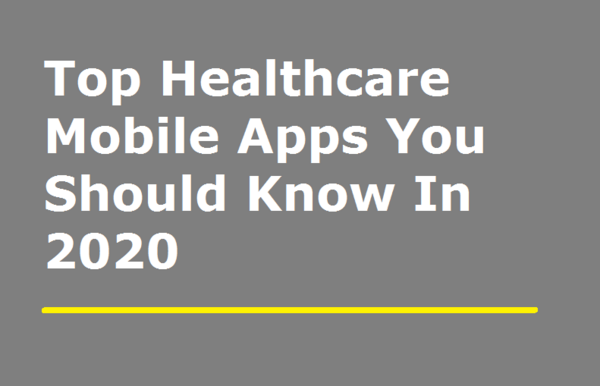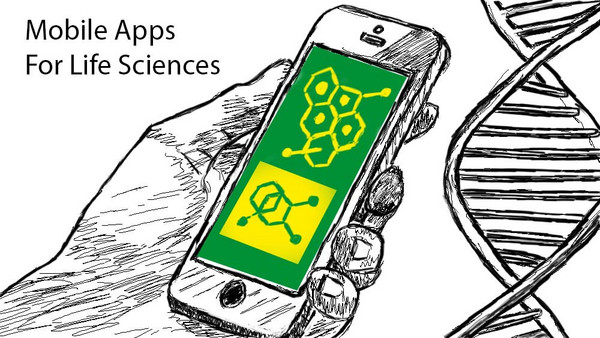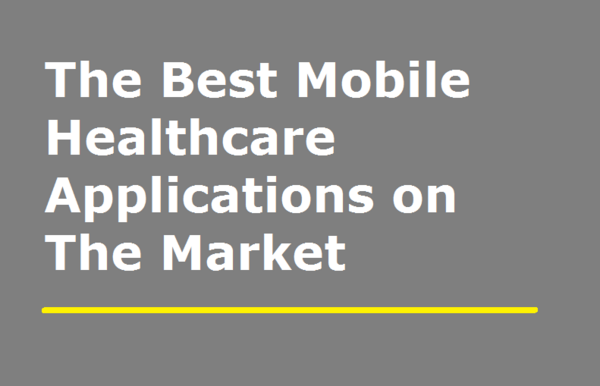Top Healthcare Mobile Apps to Explore in 2020
In the "data age," an estimated 81% of Americans own at least one smartphone. That might lead one to wonder why more people aren't taking advantage of healthcare through mobile apps. Even then, many Americans also tend to own other internet-enabled devices, from desktop computers to laptops, tablets, and more. This trend, in conjunction with the still rampaging COVID-19 pandemic, leads to a situation where technology can serve the general populace through mobile apps. So, what are the best healthcare apps, and what do they do?
Totally Pregnant
Available for both iPhone and Android, this app offers just about every feature you could need or want. The marketplace for mobile healthcare apps is booming, but even then, Totally Pregnant just can't be beaten for those who are expecting. From diet management to belly selfie features and weekly pregnancy trackers, this app has it all.
Overall, Insight Optics has a great and easy-to-use user interface alongside a simple navigation wheel that helps the user find functions quickly and effortlessly. There is also an interesting feature that offers "3D fetus animation videos." According to the app description, these videos attempt to simulate what your fetus might look like throughout different stages of development.
And still, that's not it. Totally Pregnant also offers educational videos, forums with advice from healthcare experts, and more. You can even create personal photo albums, shop for baby gear, and more. All of this is offered for free. While the app does offer plenty of in-app purchases, and likely sells your data, it is packed full of features.
Insight Optics
Insight Optics, an app designed to prevent or slow eyesight loss, grew from a concern that healthcare professionals had for their patients. According to the founders, there are roughly 71 million people in the United States alone who may suffer from vision loss. Whether it be due to old age, degenerating eye muscles or something else, the founders of this app say many of these conditions are preventable. Even more concerning, and the reason behind this app, is that 50% of those 71 million are expected to lose eyesight, which may be preventable with medical intervention.
Insight Optics records and reports retinal exams to specialists in your area for further review. This means your smartphone camera is attached to an ophthalmoscope to record high definition images of your retina. After the retinal exam, the app then draws up a list of local experts in the area who can examine your retinal recording. The list includes contact information, distance from your location, and more. This means you can record, upload, and receive a retinal consultation without leaving the comfort of your home. This could be especially beneficial if you are older and don't want to face the risk of getting COVID-19.
Medici
Another innovation in remote healthcare through mobile apps is the Medici platform. The founder of this app, Clinton Phillips, says he was inspired by other apps like Uber, Airbnb, and more. The app's goal is to improve accessibility to healthcare, drive down costs, and increase the speed at which services can be rendered. How does this app do all of that?
Medici offers two versions of the app, one for patients and one for healthcare providers. On the patient side, a user can find a doctor and connect with them, all through the app. On the doctor's side, the user can accept and manage patients as well as interact with them. This means patients can chat with their doctors via the app and describe problems, symptoms, and even do basic checkups and more. At the same time, doctors can prescribe medications, order refills, and even do basic checkups in some cases; however, the doctor may still request an in-person visit. Either way, Medici helps both patients and doctors by decreasing the time needed for most in-person visits and keeps doctors HIPAA compliant.
TalkSpace and BetterHelp
Both of these apps are being lumped into one since they serve the same purpose, and quite honestly, they both rock. TalkSpace and BetterHelp have one goal in mind: To provide patients with mental health services through a mobile app in order to reduce costs and increase accessibility to those services. Both apps have the user sign up and fill out an initial assessment. Once your account is reviewed, you'll be assigned to a therapist or other mental health care worker certified to work in your state. From there, you can video chat with that therapist and schedule appointments as needed. In some cases, you may even be able to chat with a different therapist in emergencies if your assigned therapist isn't available.
Either way, mental health is important, and you should consider yours. During these difficult times, it can be tough to stay away from binging on alcohol and using other substances to avoid stress and pain. If you believe you have a substance abuse problem, consider reaching out to an alcohol treatment center
Topics: Emerging Technologies



Comments:
There are no comments yet. You can be the first.
Leave a Reply cancel reply
Your email address will not be published. Required fields are marked *